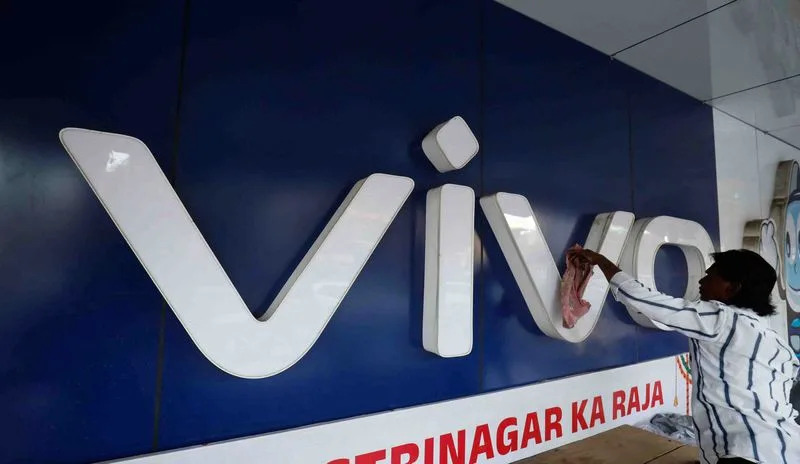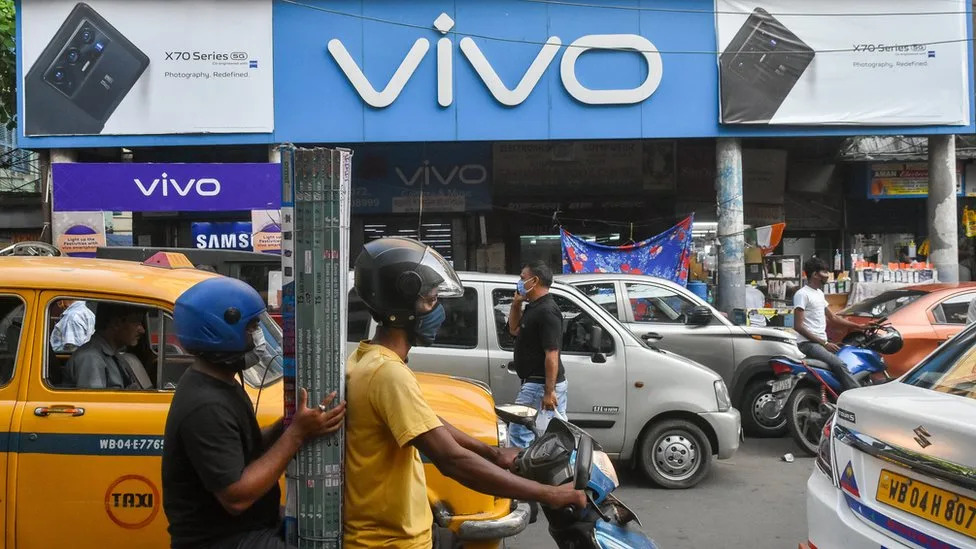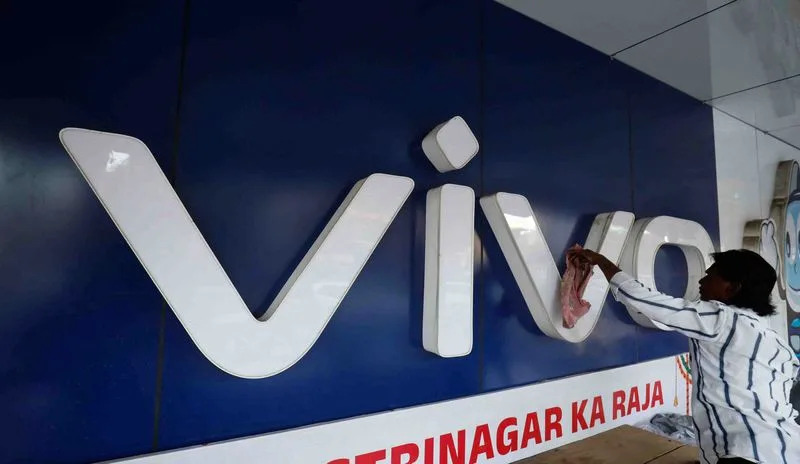DAVID CRARY
Wed, October 11, 2023


Brian Harrington, right, and Chuck Beauchine pray with other mourners during the funeral of Matthew Shepard at St. Mark's Episcopal Church Friday, Oct. 16, 1998, in Casper, Wyo. Shepard, an openly gay University of Wyoming student, died Monday from a beating in Laramie, Wyoming that's widely considered to have been at least in part motivated by his sexual orientation.
It's been 25 years since Matthew Shepard, a gay 21-year-old University of Wyoming student, died six days after he was savagely beaten by two young men and tied to a remote fence to meet his fate. His death has been memorialized as an egregious hate crime that helped fuel the LGBTQ+ rights movement over the ensuing years.
From the perspective of the movement’s activists — some of them on the front lines since the 1960s — progress was often agonizingly slow, but it was steady.
Vermont allowed same-sex civil unions in 2000. A Texas law criminalizing consensual gay sex was struck down in 2003. In 2011, the military scrapped the “don’t ask, don’t tell” policy that kept gay, lesbian and bisexual service members in the closet. And in 2015, the U.S. Supreme Court ruled that same-sex marriages were legal nationwide.
But any perception back then that the long struggle for equality had been won has been belied by events over the past two years.
Five people were killed last year in a mass shooting at an LGBTQ+ nightclub in Colorado. More than 20 Republican-controlled states have enacted an array of anti-LGBTQ+ laws including bans on sports participation and certain medical care for young transgender people, as well as restrictions on how schools can broach LGBTQ+-related topics.
"Undoubtedly we've made huge progress, but it's all at risk," said Kevin Jennings, the CEO of Lambda Legal, which has been litigating against some of the new anti-LGBTQ+ laws. “Anybody who thinks that once you've won rights they’re safe doesn't understand history. The opponents of equality never give up. They’re like the Terminator — they're not going to stop coming until they take away your rights.”
Some of the new laws are directed broadly at the entire LGBTQ+ community, such as Florida's so-called “Don't Say Gay” law, which imposes bans and restrictions on lessons in public schools about sexual orientation and gender identity. But in many of the GOP-governed states — including Florida — the prime target of legislation has been transgender people.
In addition to measures addressing medical treatments and sports participation, some laws restrict using the pronouns trans students use in classrooms.
“What we’ve said in Florida is we are going to remain a refuge of sanity and a citadel of normalcy,” said Gov. Ron DeSantis as he signed such bills earlier this year. “We’re not doing the pronoun Olympics in Florida.”
Shannon Minter, a transgender civil rights lawyer with the National Center for Lesbian Rights, depicted the wave of anti-trans bills — in some cases leading to legal harassment of trans people — as the one of the gravest threats to the LGBTQ+ community in his 30 years of activism.
“We are in danger now, given the ferocity of this backlash,” he said. “If we don’t stop this with sufficient urgency, we’ll end up with half the country living with very significant bias and lack of legal protection.”
Rodrigo Heng-Lehtinen, executive director of the National Center for Transgender Equality, depicted the legislative attacks as “the backlash to our progress.”
“We made so much progress as an LGBTQ movement, at a fast pace compared to other social justice movements,” he said. “You do have a minority who is overwhelmingly upset by it. They are fired up and they are well-resourced.”
Heng-Lehtinen is optimistic for the long term but said that right now, “trans people across the country are really struggling with feeling any kind of hope.”
The key to changing the current dynamic is for more people in GOP-governed states to get to know and understand trans people, said James Esseks, director of the American Civil Liberties Union's LGBTQ & HIV Project.
"But the efforts of the other side are designed to stop that from happening," Esseks said. “They want trans people to disappear — no health care, can't use public restrooms, can't have a government ID consistent with who you are, and the schools can't teach about the existence of trans people.”
Esseks reflected back to the Supreme Court's historic same-sex marriage ruling in 2015. At the time, he said, many activists were thinking elatedly, “OK, we're kind of done.”
“But the other side pivoted to attacking trans people and seeking religious exemptions to get a right to discriminate against gay people,” he said. “Both of those strategies, unfortunately, have been quite successful.”
The president of the largest national LGBTQ+ rights organization, Kelley Robinson of the Human Rights Campaign, summarized the situation on Tuesday:
"LGBTQ+ Americans are living in a state of emergency — experiencing unprecedented attacks from extremist politicians and their right-wing allies in states across the country, who are working tirelessly to erase us."
Several activists interviewed this week by The Associated Press evoked Matthew Shepard as they discussed broader developments. His memory lives on in many manifestations, including:
— The Matthew Shepard and James Byrd Jr. Hate Crimes Prevention Act, signed by then-President Barack Obama in 2009. The act expanded the federal hate crime law to include crimes based on a victim’s sexual orientation, gender identity or disability.
— "The Laramie Project," a play based on more than 200 interviews with residents of Laramie, Wyoming, connected to Shepard and his murder. It is a popular choice for high school theater productions but has faced opposition due to policies resembling Florida's “Don't Say Gay” law that have surfaced in various states and communities.
— The Matthew Shepard Foundation, a nonprofit co-founded by Shepard's mother, Judy. Its self-described mission: “To inspire individuals, organizations, and communities to embrace the dignity and equality of all people ... and address hate that lives within our schools, neighborhoods, and homes.”
"Matthew Shepard’s death was a life-altering moment for a lot of people," said Shelby Chestnut, executive director of the Transgender Law Center.
Earlier in his career, Chestnut worked with the New York City Anti-Violence Project, an experience that influences his worries about the recent anti-trans bills.
“When you create conditions where people have lack of access to jobs, to health care, they’re more likely to be victims of violence,” he said.
The communications director of the National LGBTQ Task Force, Cathy Renna, was in the early stages of her LGBTQ+ activism when she became involved in media coverage of Shepard’s murder in 1998.
“It shapes the way you do your advocacy for the rest of your life,” she said. “It got many people involved. It was a lightbulb — realizing that hate crimes are a thing that happens.”
`The Laramie Project' stages a special reading in Wyoming on the 25th anniversary of Shepard murder
MARK KENNEDY
Wed, October 11, 2023


Students appear at a vigil against violence at Prexy's Pasture on the University of Wyoming campus in Laramie, Wyo., on Oct. 10, 1999. The weekend marked the one-year anniversary death of Matthew Shepard, a gay University of Wyoming student, who was tied to a fence and beaten into a coma from which he died two days later on Oct. 7, 1998. The Tectonic Theater Project is marking the anniversary by gathering the original cast and creators of "The Laramie Project," and some of the people represented in the piece for a staged reading and conversation as part of the 2023 Shepard Symposium at the University of Wyoming. (AP Photo/Ed Andrieski, File)
NEW YORK (AP) — It has been 25 years since the body of Matthew Shepard was discovered in Laramie, Wyoming. The gay college student had been tied to a fence post, tortured and left to die.
The murder drew national attention to violence against gay people, and attracted the interest of theater director Moisés Kaufman, who turned the horror into art with “The Laramie Project.”
This 25th anniversary has triggered deep sadness for Kaufman, founder and artistic director of the New York-based Tectonic Theater Project. He wonders about all the things Shepard could have become.
“Every year around this time, it’s painful to remember, but this one has hit particularly hard,” Kaufman tells the AP.
After Shepard's 1998 killing, Kaufman and members of Tectonic traveled to Laramie and wrote the play based on more than 200 interviews. “The Laramie Project” is a poignant mix of real news reports, and actors portraying friends, family, police officers, killers and other Laramie residents.
This week, Tectonic is marking the anniversary by gathering the original cast and creators, and some of the people represented in the piece for a staged reading and conversation as part of the 2023 Shepard Symposium at the University of Wyoming.
“The Laramie Project,” one of the most frequently performed plays in high schools, has been performed in more than 20 countries and translated into more than 13 languages. It is among the top 10 most licensed plays in America.
“Precisely because it wasn’t about Matthew Shepard, precisely because it was about the town of Laramie is why it continues to resonate,” says Kaufman.
"We were hoping that it wouldn’t be relevant anymore. But it is every day more relevant. Hate crimes all over our nation are at much higher rates than they were when Matthew Shepard was killed."
He points to an increase in anti-Asian incidents since the pandemic began, and assaults on transgender and gender-nonconforming people.
In 2009, Kaufman was on hand as the Matthew Shepard and James Byrd Jr. Hate Crimes Prevention Act was signed by then-President Barack Obama. The act expanded the 1969 federal hate-crime law to include crimes based on a victim’s sexual orientation, gender identity or disability.
“The Laramie Project” has consistently been the subject of pushback by some conservative school districts, and this year faces banishment from Florida stages due to what critics call the “Don’t Say Gay” law.
Elsewhere, theater creators across the nation say school censorship is getting worse, particularly around material with LGBTQ+ themes. Cardinal High School in Middlefield, Ohio, canceled a production of “The 25th Annual Putnam County Spelling Bee” due to content issues.
Kaufman is also alarmed that the Lansing Board of Education in Kansas voted to remove the script of “The Laramie Project” from the school curriculum.
“There has always been — since the inception — a couple of theaters every year where the board of the school says no. All right. But this last year was the first time that the book itself was banned from a classroom.”
Kaufman has always been cheered by the students who find a way to perform the play despite barriers, becoming what he calls artist-activists. “My belief is that the best art occurs at the intersection of the personal and the political,” he says.
___
Mark Kennedy is at http://twitter.com/KennedyTwits













